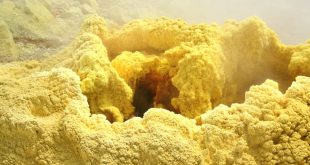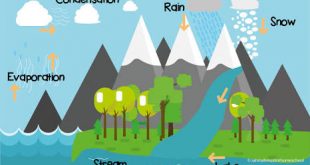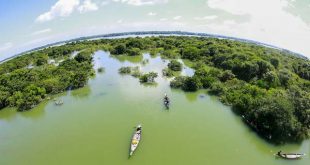Components of Water Budget The water budget of a unit area of the earth’s surface is formed from the components: P = precipitation E = Evaporation D = Discharge, Runoff R = Reserve, storage and U = Use, consumption The conservation law for water satisfies the water balance. P = …
Read More »Blog Layout
Geosphere And Biosphere
Geosphere The area near the surface of the earth can be divided into four inter-connected “geo-spheres” – lithosphere, hydrosphere, biosphere and atmosphere. The names of the four spheres are derived from the Greek words for stone (litho), air (atmo), water (hydro), and life (bio). Lithosphere The lithosphere is the …
Read More »Random Sampling
Sampling Measuring a small portion of something and then making a general statement about the whole thing is known as sampling. Sampling is a process of selecting a number of units for a study in such a way that the units represent the larger group from which they are selected. …
Read More »Ecological Succession
Ecological succession is the process of change in the species structure of an ecological community over time. It is the gradual process by which ecosystems change and develop over time. In this article, Types, Examples, Causes and Varoius models of Ecological Succession will be discussed in detail. Definition Ecological succession …
Read More »Sulphur Cycle & Microbial Role in It
The sulfur cycle is the collection of processes by which sulfur moves between rocks, waterways and living systems. Such biogeochemical cycles are important in geology because they affect many minerals. Biochemical cycles are also important for life because sulfur is an essential element, being a constituent of many proteins and cofactors, and sulfur compounds can be used as oxidants or reductants in …
Read More »Exceptions of Mendelism: Second Law
In this article we will discuss the exceptions of 2nd Law. 2nd law is divided into (i) single recessive epistasis (9:3:4), (ii) Duplicate recessive epistasis (9:7), (iii) Single dominant epistasis-cumulative effect of duplicate genes (9:6:1), (iv) Duplicate gene- one incomplete dominance (12:3:1), (v) Pleiotropism. To discuss about the topics we …
Read More »Exceptions of Mendelism: First Law
The second topic of second year Fundamental Genetics syllabus is Exceptions of Mendelism. So by the title of the article you may have understood that in this article we are going to discuss Exceptions of Mendelism. In this article we will disscuss 1st law. 1st law is divided into Incomplete …
Read More »Biogeochemical Cycle ( Part- 2)
[Click here to read ‘Bichemical Cycle (part- 1 )’ ] Threats to the Carbon Cycle Decline in forest growth. Killing of ocean phytoplankton due to rising sea temperatures. Death of forests due to spread of disease and insects. Melting permafrost layer (In geology, permafrost or permafrost soil is soil at or …
Read More »Biogeochemical Cycles (part- 1)
Definition A biogeochemical cycle or nutrient cycle is a pathway by which a chemical element or molecule moves through both biotic (biosphere) and abiotic ( lithosphere, atmosphere, and hydrosphere ) compartments of Earth. ★Nutrient cycle involves 2 general phases- The environmental phase – in which the chemical nutrient is present in …
Read More »Ecology: Definition, Subdivisions & Scopes
Ecology is the scientific study of the interactions that determine the distribution and abundance of organisms. It is the total relationships of animals to both its organic and inorganic environment’. It can be said that there is very little that is not ecology. In this article, the Definition, Subdivision, and …
Read More » Plantlet The Blogging Platform of Department of Botany, University of Dhaka
Plantlet The Blogging Platform of Department of Botany, University of Dhaka






